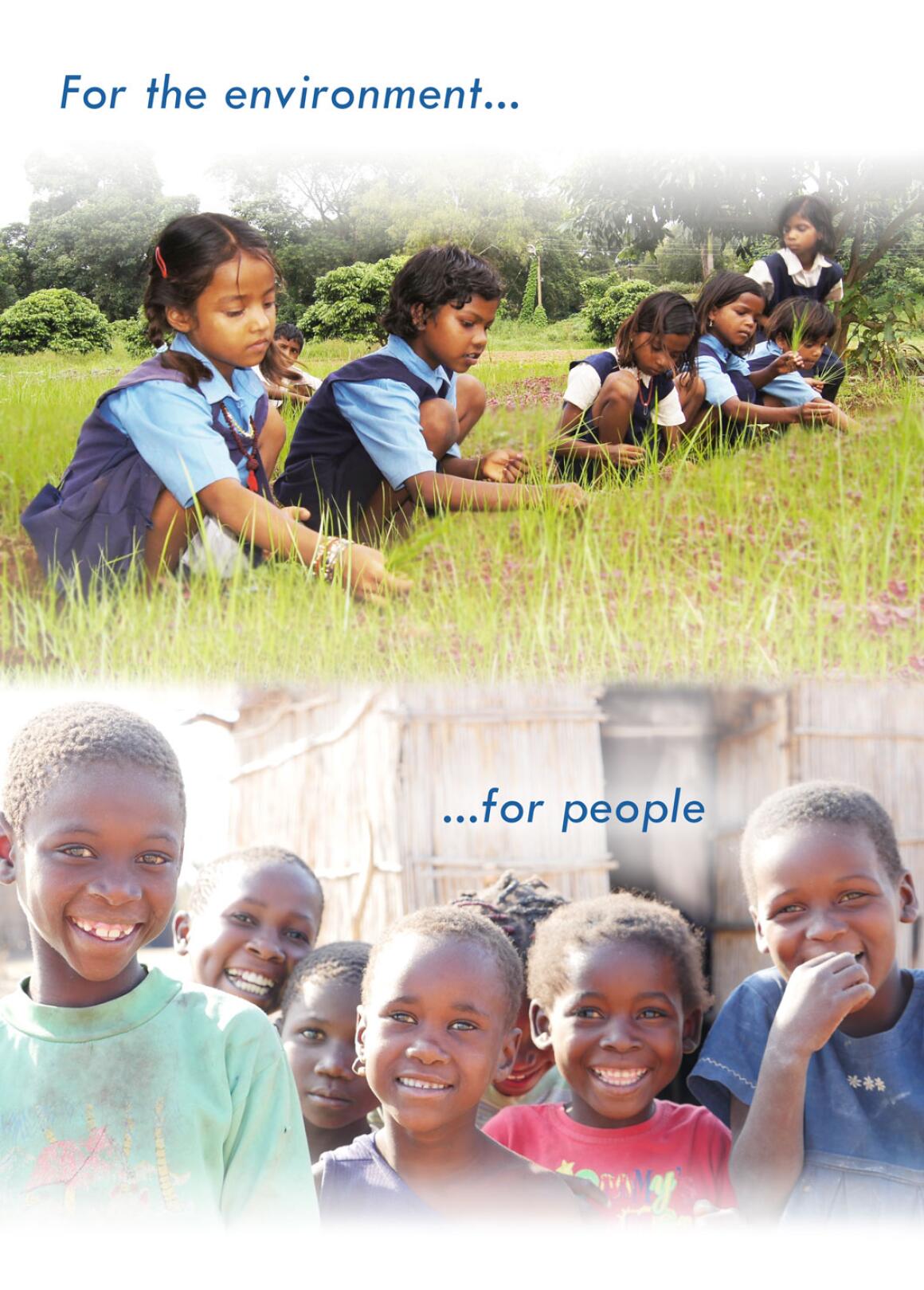
Table of Contents:
- Letter from the President
- Results Overview
- Projects
- Planet Aid at Home
- People at Planet Aid
- Financial Statement
Letter from the President

A Renewed Commitment for Sustainable Development
In September 2015, world leaders came together to adopt a new set of Sustainable Development Goals, setting a progressive development agenda for the next 15 years focused on ending poverty, creating greater equity and justice, and protecting the planet. These goals will build on the momentum created by the Millennium Development Goals, which had been signed by 189 countries in 2000. The MDGs focused on achieving eight goals by 2015, which ranged from halving extreme poverty and hunger to promoting gender equality and reducing child mortality. Approximately one billion people had been lifted out of poverty by the 2015 deadline.
Planet Aid will continue to be a part of the global effort to steer the planet onto a better path. For nearly two decades, our model of making clothing recycling convenient for the public has successfully diverted over 1 billion pounds of textiles from wasteful disposal. This has reduced landfill burdens, lowered greenhouse gas emissions, saved water, and slashed municipal disposal costs, while also providing good jobs for our employees.
In pursuing our dual mission (for the environment and for people), we will continue to donate the net proceeds from our recycling operations to support projects in the developing world. These projects are aligned with many of the Sustainable Development Goals.
For example, Planet Aid’s Food for Knowledge project in Mozambique is providing a nutritious school lunch to nearly 70,000 children and creating local sources of sustainable food production. This project is helping to fulfill SDG Goal 2, which is focused on ending hunger, achieving food security and improved nutrition, and promoting sustainable agriculture.
In the education sector, Planet Aid is helping train thousands of new primary school teachers every year across sub-Saharan Africa and in India, where there has been a significant deficit of available teachers. This work is helping achieve SDG Goal 4, which seeks to ensure inclusive, equitable quality education and promote lifelong learning opportunities for all.
A third example is Planet Aid’s support of community development initiatives that are making clean water and latrine facilities environment available to villages in many underdeveloped areas. This is congruent with SDG Goal 6, which is aimed at making clean water and improved sanitation available to all.
We are proud to be a part of the global effort to attain the Sustainable Development Goals, and look toward the next 15 years with renewed optimism and commitment. We know that our success in the future will rely, as it has in the past, on the gracious support of so many people. Without them none of what we do would be possible. A heartfelt thank you to you all.
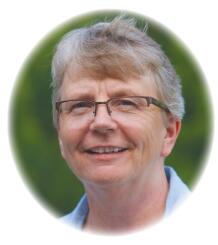
Yours in development,
Ester Neltrup, President
Results Overview

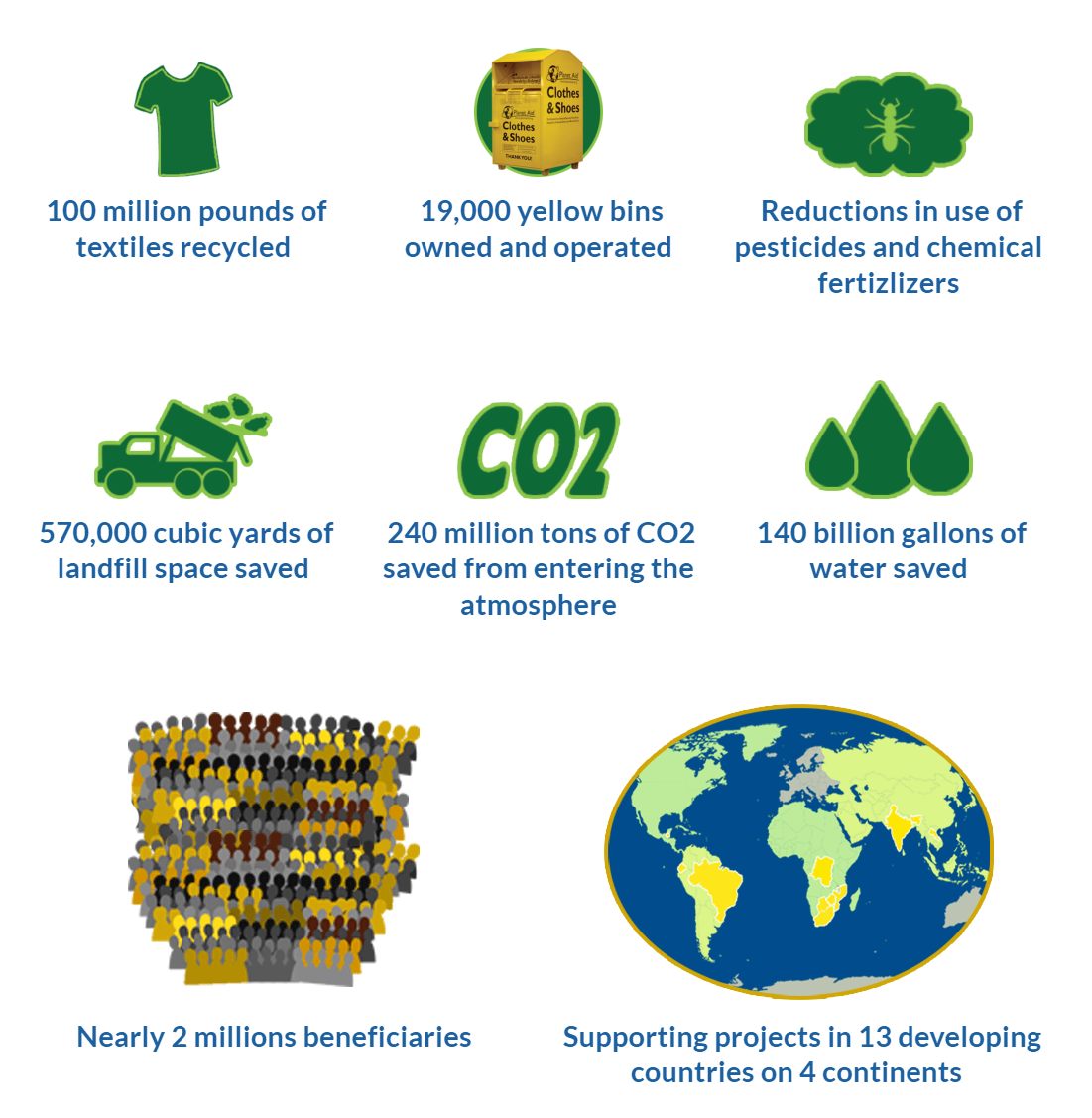
Projects
For the Environment
 Planet Aid collected approximately 100 million pounds of used textiles in 2015 in the United States. Through the reuse and recycling of this material, Planet Aid saved valuable resources that helped to reduce the emission of CO2 and other gasses that contribute to global warming. Clothing that is decaying in a landfill releases methane, a potent greenhouse gas. Similarly, producing the fibers to make cloth, such as cotton, is energy intensive and requires large inputs of fossil fuel, water, fertilizer, and pesticides. Reusing clothing and reducing the need for manufacturing new clothes is a meaningful way to save resources and mitigate climate change.
Planet Aid collected approximately 100 million pounds of used textiles in 2015 in the United States. Through the reuse and recycling of this material, Planet Aid saved valuable resources that helped to reduce the emission of CO2 and other gasses that contribute to global warming. Clothing that is decaying in a landfill releases methane, a potent greenhouse gas. Similarly, producing the fibers to make cloth, such as cotton, is energy intensive and requires large inputs of fossil fuel, water, fertilizer, and pesticides. Reusing clothing and reducing the need for manufacturing new clothes is a meaningful way to save resources and mitigate climate change.
Read more about our recycling efforts.
For People
Since 1997, Planet Aid has been supporting dozens of development projects across the globe. Through Humana People to People Federation, as well as numerous other partnerships, we are able to provide life-changing, sustainable assistance. Below is an overview of the projects we supported in 2015.
Locations of Development Projects
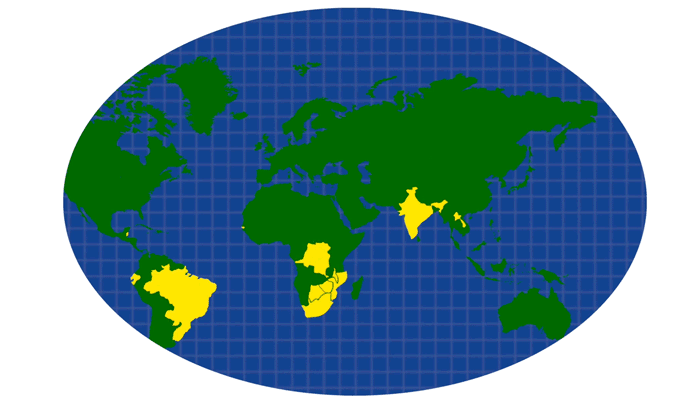
| Angola | Democratic Republic of the Congo | Malawi |
| Belize | Ecuador | Mozambique |
| Botswana | Guinea-Bissau | South Africa |
| Brazil | India | Zimbabwe |
| Laos |
We present the projects we support under five main categories below.
(Jump to each by clicking on the title.)
Community Development • Health • Food and Nutrition
Education • Sustainable Agriculture
Community Development
Child Aid Projects
Countries: Zimbabwe, South Africa, Malawi, Laos, Ecuador, Democratic Republic of the Congo, Botswana, Belize
Child Aid is Planet Aid’s most established and widely used community development model. In 2015, Planet Aid–supported Child Aid projects reached more than 90,000 families.
Broadly based, Child Aid builds capacity in families and their communities in an all-inclusive program. It recognizes that in order to nurture children successfully, the entire community must be strengthened. Families are organized into community action groups that address such issues as health and sanitation, income generation, education, and more.
Child Aid’s extensive community outreach provides training and information on health, nutrition, hygiene, environment, and other issues and mobilizes action to improve conditions as needed. Project activities are guided by a set of ten "development lines" that create a working framework for determining how to best allocate community resources and effort to achieve impact.
For example, the Child Aid project in Laos placed special emphasis on providing polio vaccinations for rural villagers after a small outbreak, and the project in Ecuador helped families establish vegetable gardens with irrigation systems and introduced earthworm compost techniques to create a rich form of organic humus.
Health
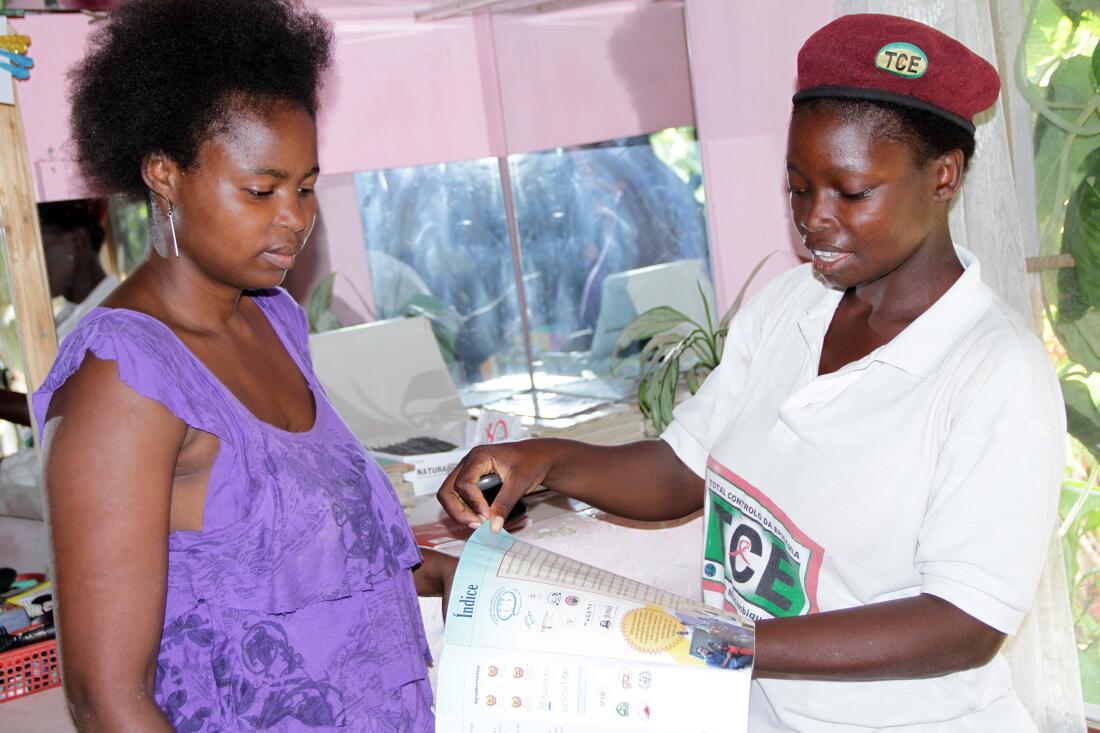
Total Control of the Epidemic (TCE) Projects
Countries: South Africa, Malawi, India
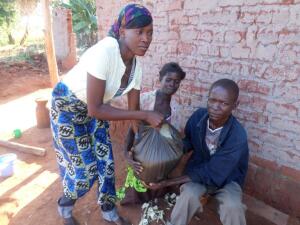 Epidemics such as HIV/AIDS, tuberculosis, and malaria ravage communities in Africa and Asia. Planet Aid is helping to fight the spread of these diseases through the Total Control of the Epidemic (TCE) projects. TCE projects raise prevention consciousness and mobilize communities to combat disease head on. Staff and local volunteers, called "passionates," visit households to provide prevention information, counselling, referrals, and testing. The TCE model has also been used to combat diabetes in India.
Epidemics such as HIV/AIDS, tuberculosis, and malaria ravage communities in Africa and Asia. Planet Aid is helping to fight the spread of these diseases through the Total Control of the Epidemic (TCE) projects. TCE projects raise prevention consciousness and mobilize communities to combat disease head on. Staff and local volunteers, called "passionates," visit households to provide prevention information, counselling, referrals, and testing. The TCE model has also been used to combat diabetes in India.
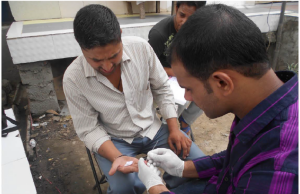 In 2015, Planet Aid supported TCE in South Africa, Malawi, and India, reaching more than 500,000 individuals with HIV or TB prevention information. It also referred thousands of individuals for HIV and TB testing and distributed nearly 2 million condoms.
In 2015, Planet Aid supported TCE in South Africa, Malawi, and India, reaching more than 500,000 individuals with HIV or TB prevention information. It also referred thousands of individuals for HIV and TB testing and distributed nearly 2 million condoms.
HOPE Projects
Countries: South Africa, Botswana
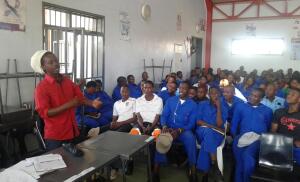 The HOPE program establishes centers where local individuals can obtain vital information and support in combating HIV/AIDS. HOPE helps those who are infected by HIV/AIDS by providing counseling and by forming support groups. The centers also offer testing so that individuals can know their HIV/AIDS status and begin treatment if they test positive. The centers are also the base for outreach efforts that distribute information that aim to dispel myths about the disease and provide practical steps on how to prevent it.
The HOPE program establishes centers where local individuals can obtain vital information and support in combating HIV/AIDS. HOPE helps those who are infected by HIV/AIDS by providing counseling and by forming support groups. The centers also offer testing so that individuals can know their HIV/AIDS status and begin treatment if they test positive. The centers are also the base for outreach efforts that distribute information that aim to dispel myths about the disease and provide practical steps on how to prevent it.
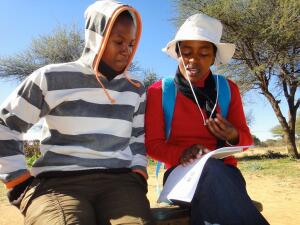 In 2015, HOPE centers supported by Planet Aid reached more than 150,000 individuals. Approximately 606,000 condoms were distributed, 13,000 people were counseled, and 2,600 HOPE activists were trained during the year.
In 2015, HOPE centers supported by Planet Aid reached more than 150,000 individuals. Approximately 606,000 condoms were distributed, 13,000 people were counseled, and 2,600 HOPE activists were trained during the year.
Community Health Agents Project
Countries: Angola
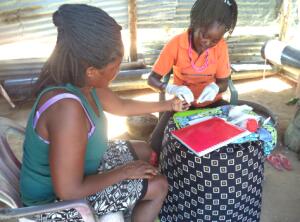 The Community Health Agent (CHA) project is part of the Angola Ministry of Health’s strategy for the revitalization of health services in the country. The program aims at raising the level of health services for people in rural areas by improving facilities, improving the capacity of the health service staff, and by carrying out preventative health care work among the population.
The Community Health Agent (CHA) project is part of the Angola Ministry of Health’s strategy for the revitalization of health services in the country. The program aims at raising the level of health services for people in rural areas by improving facilities, improving the capacity of the health service staff, and by carrying out preventative health care work among the population.
The CHA project has been training locally recruited CHAs in three municipalities of the province of Kunene. The CHAs then, in turn, provide vital information to local communities about diseases such as malaria, tuberculosis, HIV, diarrhea, reproductive health, antenatal health, and family planning. 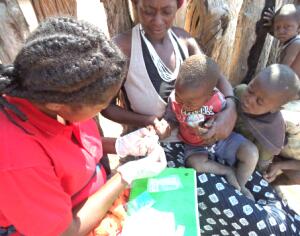 The CHAs are also trained and qualified to administer rapid tests for malaria and provide voluntary counseling and testing for HIV/AIDS.
The CHAs are also trained and qualified to administer rapid tests for malaria and provide voluntary counseling and testing for HIV/AIDS.
In 2015, CHA workers visited more than 10,000 families. In addition, more than 450,000 condoms were distributed.
Food and Nutrition
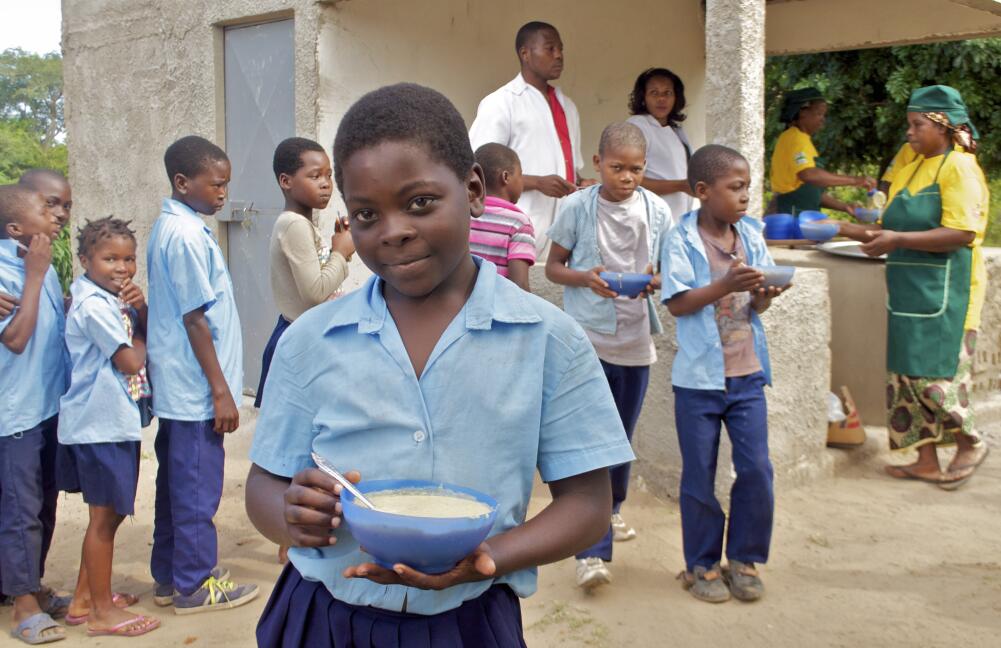
Nutrition Projects
Countries: Malawi
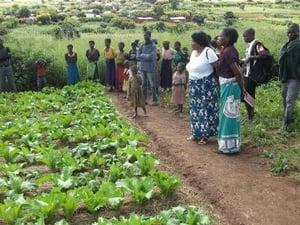 Planet Aid–supported nutrition programs in the rural Dowa, Blantyre, and Chiradzulu districts of Malawi aim to reduce child stunting and child and maternal anemia. Project staff have been training district officials in how to expand nutrition programs, while also counseling caregivers on feeding practices for infants and young children and improving sanitation and hygiene facilities. The project also established community gardens to help increase intake of iron-rich leafy greens.
Planet Aid–supported nutrition programs in the rural Dowa, Blantyre, and Chiradzulu districts of Malawi aim to reduce child stunting and child and maternal anemia. Project staff have been training district officials in how to expand nutrition programs, while also counseling caregivers on feeding practices for infants and young children and improving sanitation and hygiene facilities. The project also established community gardens to help increase intake of iron-rich leafy greens.
In 2015, the project reached over 200,000 individuals through door-to-door counseling visits, which provided essential nutrition information. It also helped establish approximately 3,000 vegetable gardens to grow leafy greens. Sanitation training focused on the construction of latrines, handwashing facilities, and other facilities. This led to the construction of nearly 3,000 pit latrines and 3,500 handwashing facilities.
Food for Knowledge Project
Countries: Mozambique
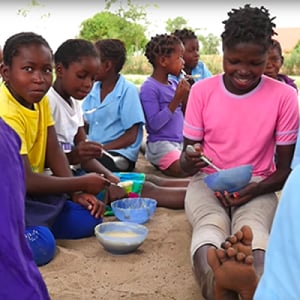 The Food for Knowledge Project is a comprehensive school lunch program targeting the Maputo District of Mozambique. It incorporates cross-cutting development initiatives to bolster the health and learning potential of primary school students and the communities in which they live. It is implemented with funding provided by the USDA’s McGovern-Dole International Food for Education and Child Nutrition program.
The Food for Knowledge Project is a comprehensive school lunch program targeting the Maputo District of Mozambique. It incorporates cross-cutting development initiatives to bolster the health and learning potential of primary school students and the communities in which they live. It is implemented with funding provided by the USDA’s McGovern-Dole International Food for Education and Child Nutrition program.
In 2015, Food for Knowledge provided a daily school lunch to approximately 70,000 children. In addition to the daily meals, the project is training primary school teachers, establishing schools gardens and after-school learning clubs, building literacy skills, providing nutrition education, and constructing or refurbishing school kitchens and latrines.
The success of the Food for Knowledge Project led to it being extended through 2020. The extension was granted in mid 2015.
Read more about the Food for Knowledge Project.
Education
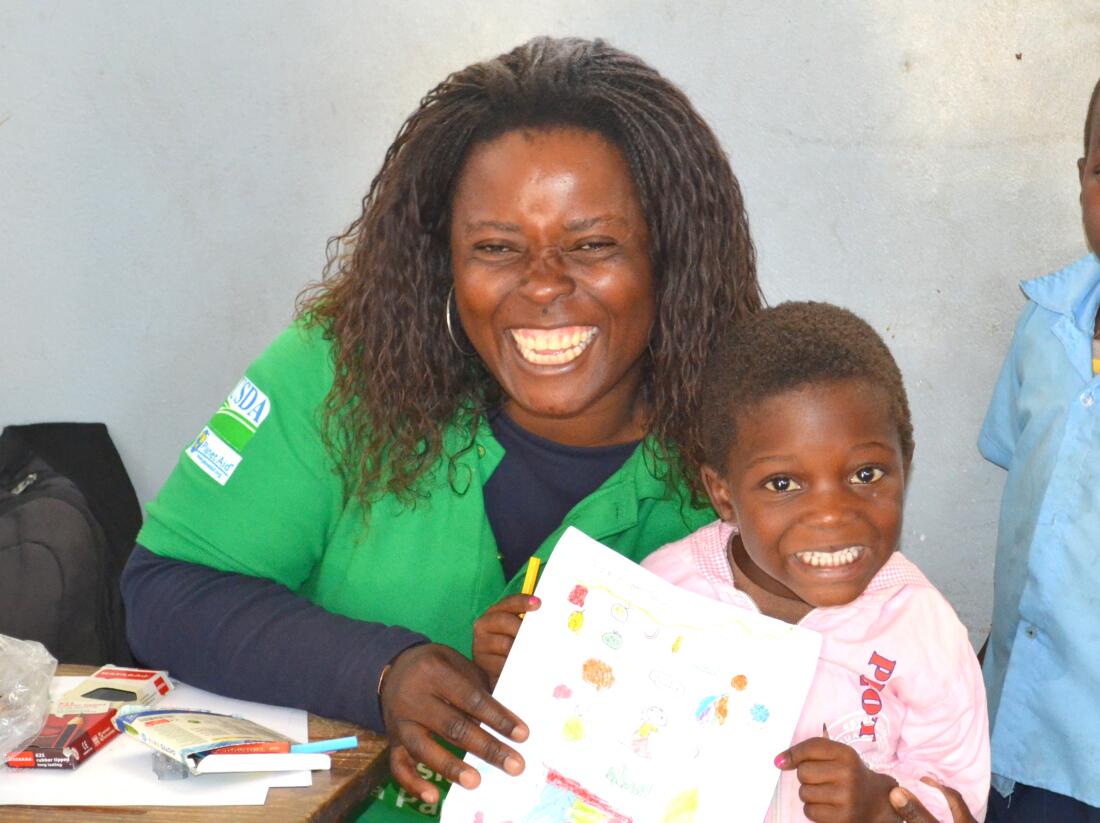
Teacher Training Projects
Countries: Mozambique, Malawi, India, Guinea-Bissau, the Democratic Republic of the Congo, Angola
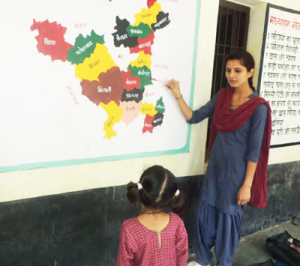 Planet Aid supported the training of new primary school teachers at 12 colleges in 7 countries in 2015. The colleges work in conjunction with their respective governments to produce effective, innovative educators who create exciting educational environments and inspire pupils to stay in school. Their work creates a foundation for long-term learning in the classroom as well as the community. In addition to a strong foundation in pedagogy, the student teachers learn how to lead local development initiatives that may range from improving sanitation facilities to conducting adult literacy lessons. All of the supported colleges use the well-established DNS methodology, which reinforces the importance of practical learning, adaptability, and self-reliance.
Planet Aid supported the training of new primary school teachers at 12 colleges in 7 countries in 2015. The colleges work in conjunction with their respective governments to produce effective, innovative educators who create exciting educational environments and inspire pupils to stay in school. Their work creates a foundation for long-term learning in the classroom as well as the community. In addition to a strong foundation in pedagogy, the student teachers learn how to lead local development initiatives that may range from improving sanitation facilities to conducting adult literacy lessons. All of the supported colleges use the well-established DNS methodology, which reinforces the importance of practical learning, adaptability, and self-reliance.
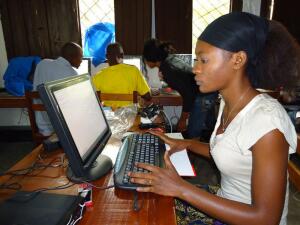 In 2015, the colleges graduated more than 800 new teachers, continued to train an additional 2,800 student teachers, and impacted more than 22,000 community members through local projects and initiatives.
In 2015, the colleges graduated more than 800 new teachers, continued to train an additional 2,800 student teachers, and impacted more than 22,000 community members through local projects and initiatives.
Read more about Teacher Training.
One World University
Countries: Mozambique
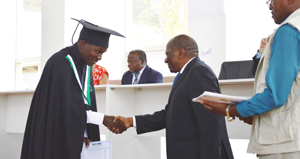 One World University in Mozambique is a Planet Aid–supported institution of higher education that trains instructors for teacher training colleges and develops new leaders in the fight against poverty. Students have the option of undertaking one of two courses: Pedagogy or Community Development.
One World University in Mozambique is a Planet Aid–supported institution of higher education that trains instructors for teacher training colleges and develops new leaders in the fight against poverty. Students have the option of undertaking one of two courses: Pedagogy or Community Development.
The Pedagogy course is designed to train educators who, in turn, train primary school teachers at teacher training colleges.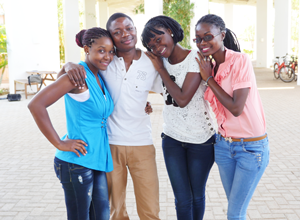 The Community Development course shapes students into critical thinkers who can tackle development challenges on the community level.
The Community Development course shapes students into critical thinkers who can tackle development challenges on the community level.
In 2015, more than 200 students were in training at the OWU campus in Mozambique, and an additional 350 students were completing their studies through the university’s distance learning program.
Read more about One World University.
Vocational Training Projects
Countries: Zimbabwe, Mozambique, Guinea-Bissau, Angola
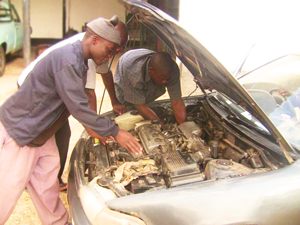 Vocational training offers individuals in developing countries the opportunity to learn relevant skills to qualify for a job or to start their own small enterprise. Courses range in length from three months to three years, and are offered in areas such as agriculture, animal husbandry, construction, solar energy technology, plumbing, and motor mechanics. Overall, approximately 700 students were enrolled at five Planet Aid–supported vocational schools in 2015.
Vocational training offers individuals in developing countries the opportunity to learn relevant skills to qualify for a job or to start their own small enterprise. Courses range in length from three months to three years, and are offered in areas such as agriculture, animal husbandry, construction, solar energy technology, plumbing, and motor mechanics. Overall, approximately 700 students were enrolled at five Planet Aid–supported vocational schools in 2015.
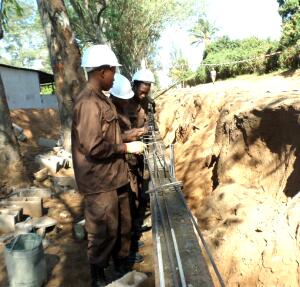 In Angola, for example, 40 students graduated from the EPP Vocational School in Cabida with a diploma from the Ministry of Education certifying that they completed basic technical training at the 9th grade level. The students focused on studies that made them qualified to assist in water infrastructure construction, preschool education, and restaurant cooking.
In Angola, for example, 40 students graduated from the EPP Vocational School in Cabida with a diploma from the Ministry of Education certifying that they completed basic technical training at the 9th grade level. The students focused on studies that made them qualified to assist in water infrastructure construction, preschool education, and restaurant cooking.
Similarly, in Guinea-Bissau, the ADPP Vocational School graduated 99 students from courses in solar energy technology, construction, commerce and administration, basic electricity, plumbing, and agriculture.
Along with learning trade skills, students are equipped with essential life skills that inspire resilience and perseverance in places where everyday existence is often very difficult.
Read more about Vocational Training.
Early Education Initiatives
Countries: Mozambique, South Africa
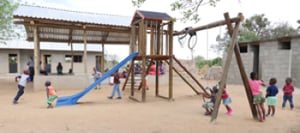 Planet Aid supports preschool initiatives that provide access to early childhood development. In Mozambique, the 70 Preschools Project in the Maputo Province of Mozambique is an innovative pilot project aligned with the Government of Mozambique’s strategy for the integrated development of school-aged children. It is reaching rural areas that formerly had no access to early education. The project is constructing the preschools and training classroom facilitators, while engaging local communities to be involved. The project has completed construction of the first 23 preschools and has enrolled approximately 1,650 children.
Planet Aid supports preschool initiatives that provide access to early childhood development. In Mozambique, the 70 Preschools Project in the Maputo Province of Mozambique is an innovative pilot project aligned with the Government of Mozambique’s strategy for the integrated development of school-aged children. It is reaching rural areas that formerly had no access to early education. The project is constructing the preschools and training classroom facilitators, while engaging local communities to be involved. The project has completed construction of the first 23 preschools and has enrolled approximately 1,650 children.
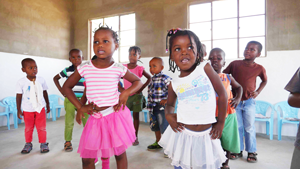 The South Africa Preschools of the Future Movement is similarly aiding in the establishment of early childhood development centers for disadvantaged children. Specific project activities in 2015 included identifying sites for new preschools to be built, training teachers, and developing curriculum.
The South Africa Preschools of the Future Movement is similarly aiding in the establishment of early childhood development centers for disadvantaged children. Specific project activities in 2015 included identifying sites for new preschools to be built, training teachers, and developing curriculum.
Read more about Early Education Initiatives.
Girls Stay in School Project
Countries: Mozambique
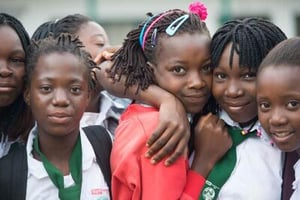 Girls Stay in School (GSS) is implemented in the Namacurra District of the Maputo Province in Mozambique. The aim is to create a supportive culture that emphasizes the importance of girls’ education. The project is working with 18 primary schools and 3 secondary schools to reduce the obstacles that prevent girls with few economic means to transition to secondary school.
Girls Stay in School (GSS) is implemented in the Namacurra District of the Maputo Province in Mozambique. The aim is to create a supportive culture that emphasizes the importance of girls’ education. The project is working with 18 primary schools and 3 secondary schools to reduce the obstacles that prevent girls with few economic means to transition to secondary school.
In 2015, the project trained 80 mentors to counsel over 1,500 girls. The project also conducted door-to-door visits, organized intra-school competitions to motivate students, and distributed thousands of books.
Read more about Girls Stay in School.
Step-Up Centers
Countries: India
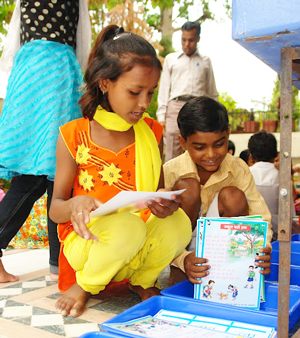 While India has made considerable progress in improving school enrollment, an estimated 17.7 million children still do not attend school. Planet Aid-supported Step-Up Centers aim to bring children who have dropped out of school or never enrolled a chance to enter or re-enter the mainstream school system.
While India has made considerable progress in improving school enrollment, an estimated 17.7 million children still do not attend school. Planet Aid-supported Step-Up Centers aim to bring children who have dropped out of school or never enrolled a chance to enter or re-enter the mainstream school system.
Step-Up Centers provide classes six days a week to students ages 6-14. This offers marginalized youth a chance to "catch up" and, with the support of the centers, enroll in government schooling at the appropriate age and grade level. In addition to assisting in this transition, Step-Up Centers provide community support through village development meetings and health check-up camps.
Planet Aid supports Step-Up Centers in Haryana and Madhya Pradesh. In 2015, more than 2,300 children were enrolled at the centers.
Read more about Step-Up Centers.
Ponesai Vanhu Junior School
Countries: Zimbabwe
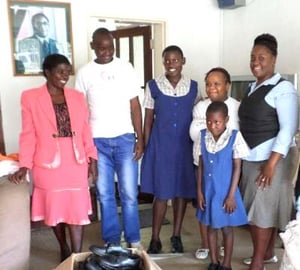 Ponesai Vanhu Junior School was started in 1994 as a rehabilitation and reintegration center for street children. The school provides for needy children by providing basic education, vocational skills training, and other support to reintegrate into society. The school takes in orphans and abandoned children from the 10 provinces of Zimbabwe in cooperation with the Ministry of Labor and Social Services.
Ponesai Vanhu Junior School was started in 1994 as a rehabilitation and reintegration center for street children. The school provides for needy children by providing basic education, vocational skills training, and other support to reintegrate into society. The school takes in orphans and abandoned children from the 10 provinces of Zimbabwe in cooperation with the Ministry of Labor and Social Services.
In 2015, the school cared for 60 children whose ages ranged from 2 to 18. Ten of the children in its care are HIV positive and are on anti-retroviral therapy. It is the school’s objective to make sure that children do not default treatment and regularly visit the nearby Madziwa Hospital for their medical reviews.
Institutional Training and Capacity Building
Countries: Zimbabwe, South Africa, Malawi, India
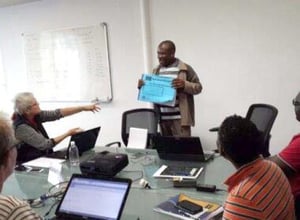 Planet Aid provides capacity building and training assistance to development organizations across the globe. In 2015, these training initiatives ranged from establishing a management information systems for the teacher-training program in India for tracking program progress to training program staff in data capture for the TCE initiative in South Africa. Planet Aid also regularly provides fundraising support and agreement brokering assistance to local development organizations.
Planet Aid provides capacity building and training assistance to development organizations across the globe. In 2015, these training initiatives ranged from establishing a management information systems for the teacher-training program in India for tracking program progress to training program staff in data capture for the TCE initiative in South Africa. Planet Aid also regularly provides fundraising support and agreement brokering assistance to local development organizations.
Planet Aid also supported training at Frontline Institutes in Malawi and Zimbabwe. These institutions train key Humana People to People staff to acquire the skills and understanding necessary to become development leaders. Planet Aid also hosts promising young people from developing regions and trains them in the United States for periods of time.
Sustainable Agriculture
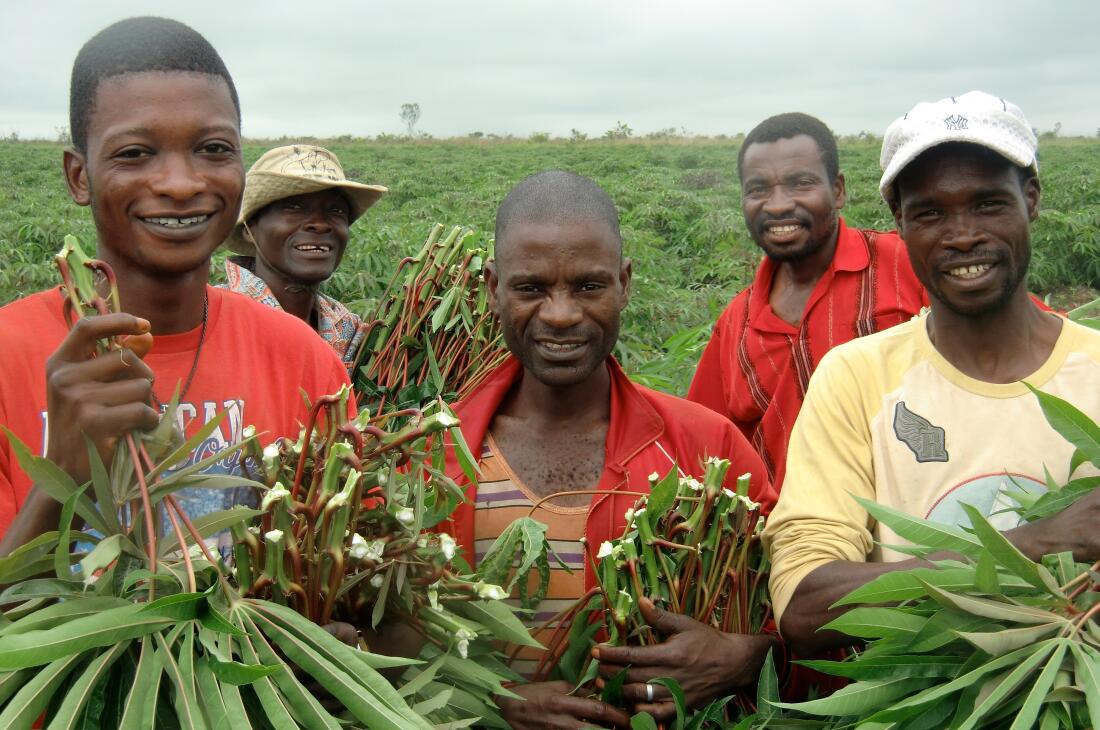
Farmers' Clubs Projects
Countries: South Africa, India, Ecuador, Brazil, Zimbabwe, Angola
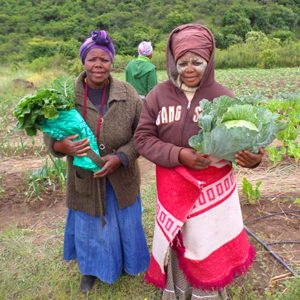 The Farmers’ Clubs model is a proven, highly-adaptable development model that has been implemented in many countries around the globe. This project organizes subsistence level producers into working groups, referred to as "clubs," and trains and mobilizes them to increase food security and income. The training ranges from techniques in conservation agriculture to new ways of value-chain processing and marketing.
The Farmers’ Clubs model is a proven, highly-adaptable development model that has been implemented in many countries around the globe. This project organizes subsistence level producers into working groups, referred to as "clubs," and trains and mobilizes them to increase food security and income. The training ranges from techniques in conservation agriculture to new ways of value-chain processing and marketing.
In 2015, Farmers’ Clubs supported by Planet Aid reached more than 12,000 farmers in 6 countries.
Read more about Farmers' Clubs.
Green Project Neemrana
Countries: India
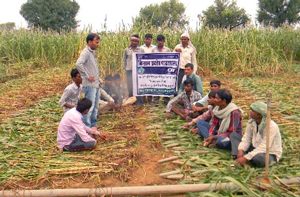 Green Project Neemrana began in 2009 in cooperation with the Government of India and local industries in an effort to lessen groundwater depletion.
Green Project Neemrana began in 2009 in cooperation with the Government of India and local industries in an effort to lessen groundwater depletion.
In 2015, the Neemrana project continued its work of providing water-saving solutions, while also expanding activities to include the promotion of sustainable agricultural practices in 70 rural villages. These activities included crop and seed demonstrations and the construction of biogas plants.
Murgwi Farm and Community Center
Countries: Zimbabwe
.jpg?width=300&height=150&name=murgwi%20(1).jpg) The Murgwi Farm and Community Center in Zimbabwe provides food and support services to communities that surround the headquarters of Humana People to People.
The Murgwi Farm and Community Center in Zimbabwe provides food and support services to communities that surround the headquarters of Humana People to People.
In 2015, the center grew staple crops such as maize, soy, and beans, while also cultivating vegetable gardens and fruit trees. The center also offered immunizations and other health services, and provided preschool education.
Planet Aid at Home

Hosting Zero-Waste Representatives from Russia
.jpg?width=400&height=385&name=russians2%20(1).jpg)
The U.S. State Department brought a "Zero-Waste" delegation from Russia to Planet Aid’s headquarters in Elkridge, Maryland to learn about best practices in textile recycling. The delegation was visiting the United States under the International Visitor Leadership Program, and the group was comprised of current and emerging leaders in waste and recycling management. Planet Aid was the first facility stop on the group's cross-country tour...
Opening Our First Thrift Center in Maryland
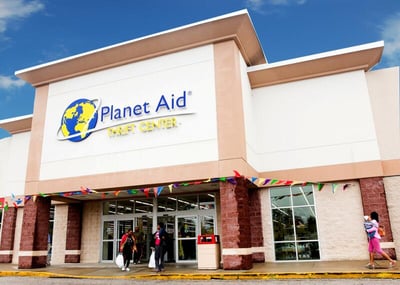
The Planet Aid Thrift Center opened for business in early October. The Thrift Center is the first large Planet Aid retail store, providing the local community with a new source of affordable, stylish clothing. The store sells men's, women’s, and children's clothing and shoes, as well as jewelry, accessories, home decor, toys, movies, books, and games...
Donating Coats to Local Charities
.jpg?width=400&height=273&name=terry%20(1).jpg)
Planet Aid donated winter coats and other cold-weather gear to the less fortunate as the temperatures dropped throughout the country. The cold-weather gear went to numerous charitable organizations...
Celebrating Our New Donation Center
Local residents, Planet Aid staff, and members of the Newport County Chamber of Commerce attended a ribbon-cutting ceremony on July 22 in celebration of the new Planet Aid Donation Center. The Donation Center provides locals a 24/7 drop-off point for their unwanted clothes, shoes, accessories, household textiles, appliances, glassware, books, and sports equipment...
People at Planet Aid
Board and Officers
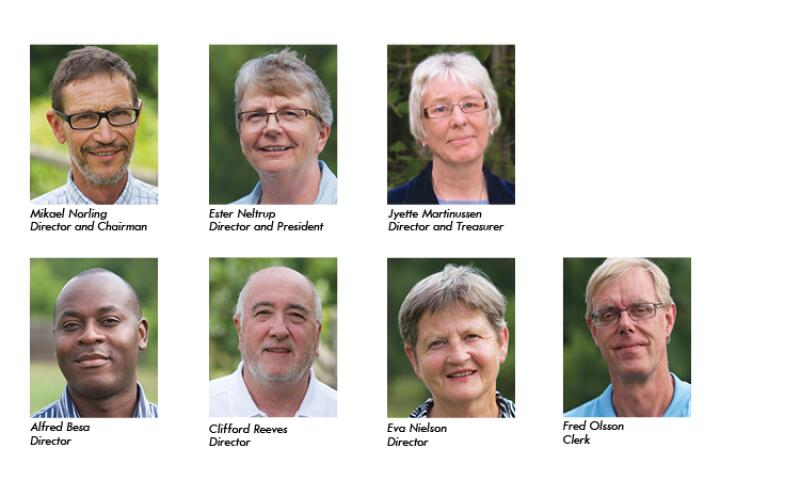
Meet Our Staff...
 Gena Carruthers has been with Planet Aid since 2012 as North Carolina's Community Relations Manager. She develops relationships with individuals, businesses, governments, and other organizations, and educates the community about the importance of textile recycling.
Gena Carruthers has been with Planet Aid since 2012 as North Carolina's Community Relations Manager. She develops relationships with individuals, businesses, governments, and other organizations, and educates the community about the importance of textile recycling.
"Having the platform to share and involve others with Planet Aid's work is an incredibly rewarding position," Gena Says. "I enjoy orchestrating recycle opportunities which give directly back to the environment, while at the same time, make a real difference in people's lives who need it the most." In 2015, she helped Planet Aid make a strong impact locally by working with veterans groups, shelters, community resource centers, food banks, literacy organizations, schools, and more.
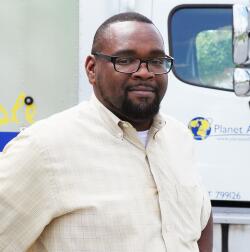 Frank Fowler has been working at Planet Aid’s headquarters in Maryland since 2011. He started as the Transportation Manager and was quickly promoted to his current position as Operations Manager. He oversees all community outreach activities and clothes collection operations throughout the Maryland, Virginia, West Virginia, and Washington D.C. areas. He also manages dozens of employees, including truck drivers, warehouse staff, logistics specialists, and territory managers, all of whom help process the thousands of pounds of textiles dropped in the area’s yellow bins each year.
Frank Fowler has been working at Planet Aid’s headquarters in Maryland since 2011. He started as the Transportation Manager and was quickly promoted to his current position as Operations Manager. He oversees all community outreach activities and clothes collection operations throughout the Maryland, Virginia, West Virginia, and Washington D.C. areas. He also manages dozens of employees, including truck drivers, warehouse staff, logistics specialists, and territory managers, all of whom help process the thousands of pounds of textiles dropped in the area’s yellow bins each year.
"I like knowing that what I am doing is truly helping someone somewhere," says Frank. "It’s my mission to do the best that I can for others."
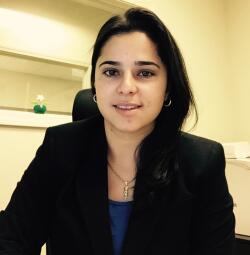 Luana Costa is a multi-talented special projects manager, who started working with Planet Aid in 2006. She has been involved in many aspects of Planet Aid's operations, helping to fix problems and make operations run smoothly. She is currently in charge of training staff on how to use Planet Aid’s new data base system. "Our data base has information on every Planet Aid bin, including its history and ongoing usage, and a lot more."
Luana Costa is a multi-talented special projects manager, who started working with Planet Aid in 2006. She has been involved in many aspects of Planet Aid's operations, helping to fix problems and make operations run smoothly. She is currently in charge of training staff on how to use Planet Aid’s new data base system. "Our data base has information on every Planet Aid bin, including its history and ongoing usage, and a lot more."
Luana says her job is never dull and there are always new challenges." What I like best about working here is the family like environment, and everyone is treated with respect."
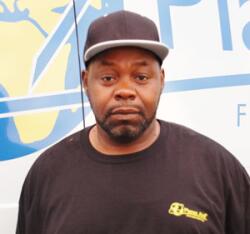 Robert Smith applied for a job as a Planet Aid Truck Driver in 2004 after hearing positive things about the company from his brother, who already was an employee. Since then, he has been an integral part of the clothes collection process for the Michigan office, traveling around the state to pick up donated clothes from the signature yellow bins.
Robert Smith applied for a job as a Planet Aid Truck Driver in 2004 after hearing positive things about the company from his brother, who already was an employee. Since then, he has been an integral part of the clothes collection process for the Michigan office, traveling around the state to pick up donated clothes from the signature yellow bins.
Robert generally gets on the road by 6 a.m., and visits 25 to 35 sites during his shift. "I like the driving," he says, "and not to sound cliché, but I like the people that I work with." He credits his supervisors for creating a great work environment.
"I just enjoy doing what I do, and the people I work with have always been a pleasure," Robert says.
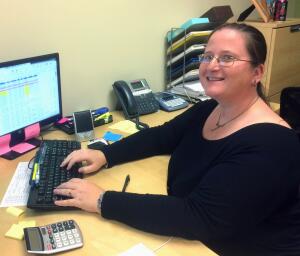 Michele Yaruta got her start at Planet Aid almost 10 years ago through the company’s Manager In Training program. As part of the program, Michele had the opportunity to contribute to Planet Aid’s development work overseas. "Having worked with one of the projects in Africa for three months, I saw firsthand how Planet Aid helps," she says. "The idea behind the programs is to teach rather than give so that, if or when the program ends, the people left behind are self-sufficient."
Michele Yaruta got her start at Planet Aid almost 10 years ago through the company’s Manager In Training program. As part of the program, Michele had the opportunity to contribute to Planet Aid’s development work overseas. "Having worked with one of the projects in Africa for three months, I saw firsthand how Planet Aid helps," she says. "The idea behind the programs is to teach rather than give so that, if or when the program ends, the people left behind are self-sufficient."
She stayed on after completing her training and has been a versatile member of the Planet Aid team ever since. Her job now is Operation’s Analyst, which has her overseeing the company's auto insurance, submitting payroll, handling invoices and receipts, and performing other tasks for the transportation department. "I have had the opportunity to watch the organization grow from something small to something much larger that can make a greater impact on the world," says Michele, "and the one thing that has never changed over the years is that everyone—from the employees in the warehouse to the president of the organization—works as a team."
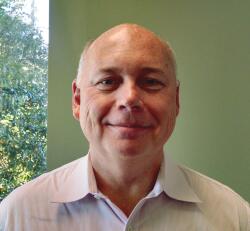 Tom Meehan is Planet Aid's Chief Financial Officer working from the Milford, Massachusetts office. Tom came to Planet Aid in 2007 with 30 years of experience in the nonprofit sector. As the CFO, Tom has controllership authority and is responsible for monitoring and reporting on the organization's overall financial condition.
Tom Meehan is Planet Aid's Chief Financial Officer working from the Milford, Massachusetts office. Tom came to Planet Aid in 2007 with 30 years of experience in the nonprofit sector. As the CFO, Tom has controllership authority and is responsible for monitoring and reporting on the organization's overall financial condition.
"I am proud to be a part of this great organization," says Tom. "Planet Aid offers people a hand up in getting on their feet and in developing their communities. I have seen the work being carried out first hand in Africa, and I continue to be very impressed."
Financial Statement
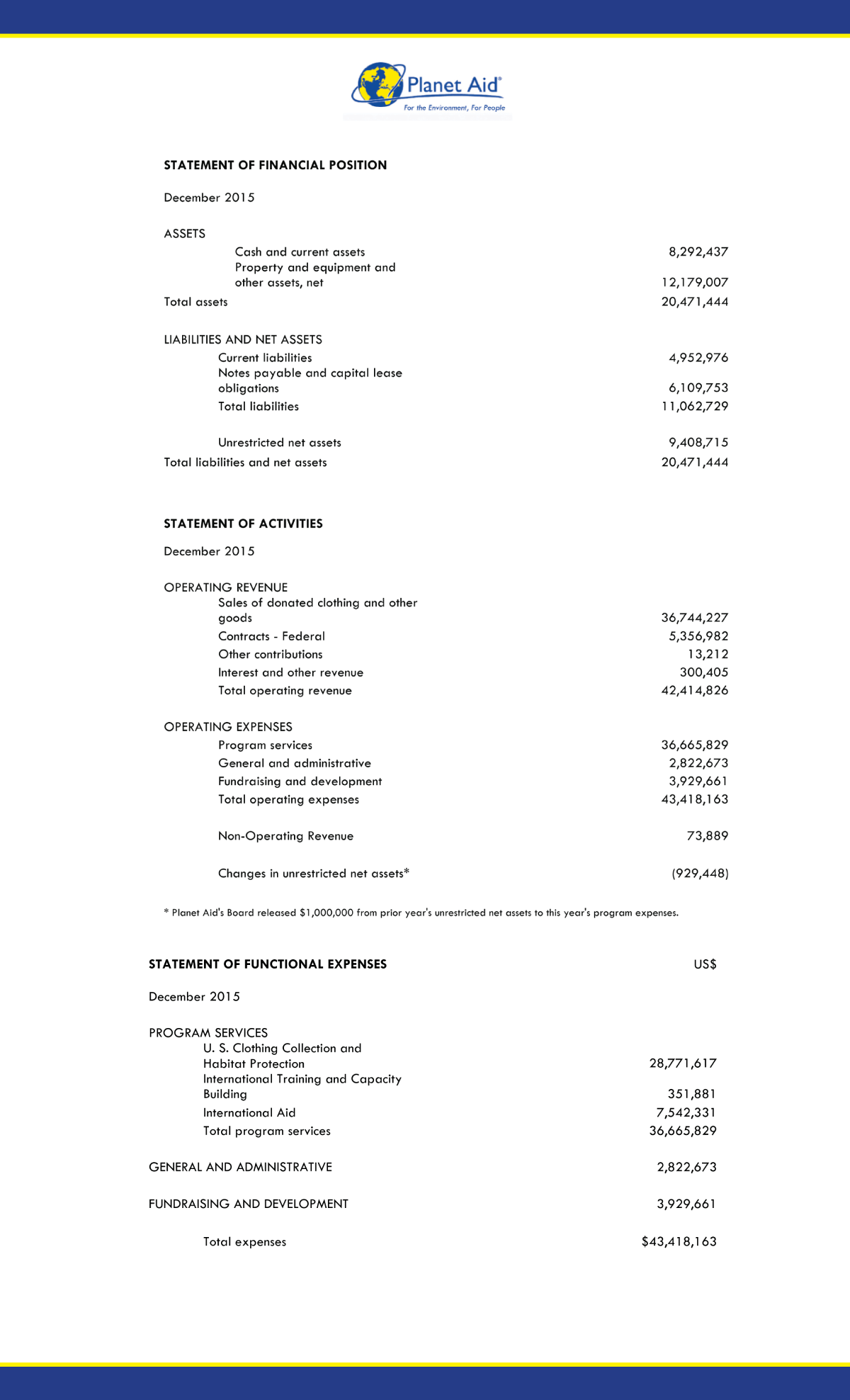
| Task | Internal Program Support |
|---|---|
| Program Services | 84 |
| General and Administrative | 7 |
| Fundraising and Development | 9 |

.jpg?width=1000&height=625&name=RIDC%20(1).jpg)